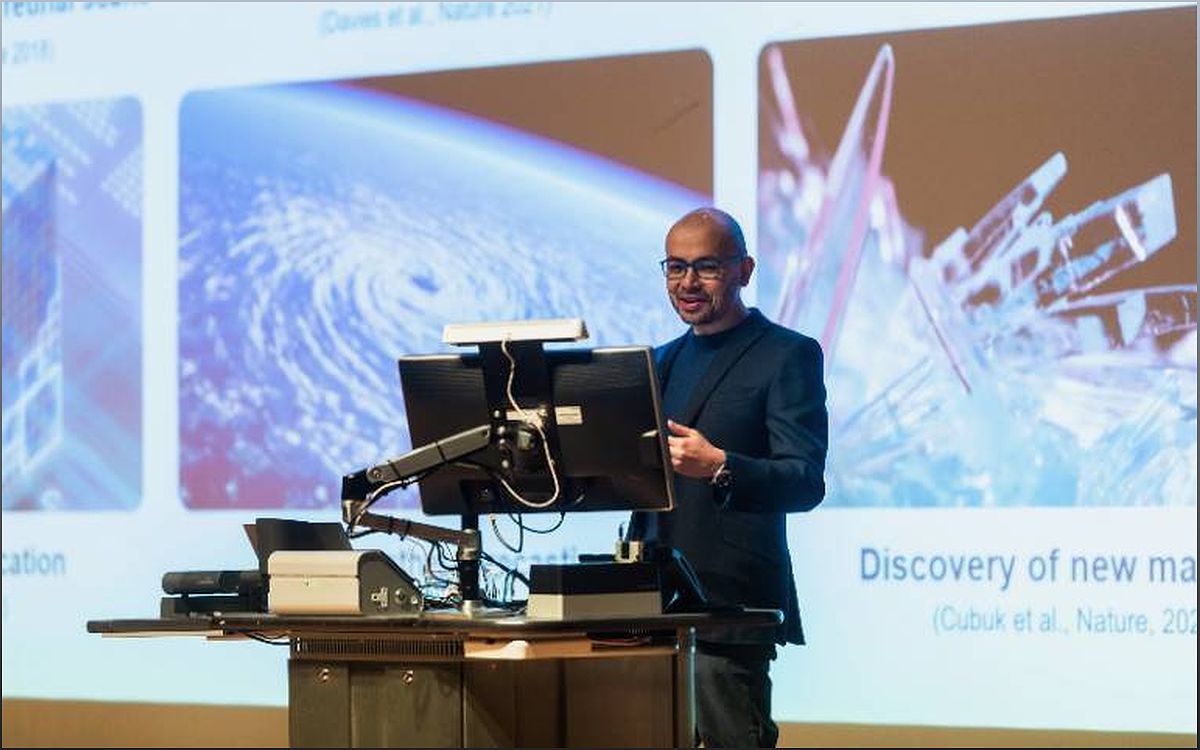In the 2023 UCL Prize Lecture in Life and Medical Sciences, Demis Hassabis, the co-founder and CEO of Google DeepMind, delved into the exciting world of 'Using AI to Accelerate Scientific Discovery.' With a background in cognitive neuroscience and a passion for computer science, Hassabis shared his journey from childhood interests to leading one of the most influential AI companies. He highlighted the groundbreaking achievements of DeepMind, including AlphaGo and AlphaFold, and emphasized the positive impact AI can have on humanity. Hassabis also stressed the importance of responsible and safe AI development, advocating for a scientific approach that considers risks and ethical implications. Join us as we explore the fascinating insights shared by Demis Hassabis in this thought-provoking lecture.
The Potential of AI in Scientific Discovery
Demis Hassabis, in his UCL Prize Lecture, highlighted the transformative power of AI in scientific discovery. He emphasized how AI has already contributed to groundbreaking advancements, such as AlphaGo and AlphaFold, and how it holds the potential to revolutionize various fields of research.
By leveraging AI's capabilities, scientists can process vast amounts of data, identify patterns, and make predictions with unprecedented accuracy. This not only expedites the pace of scientific discovery but also opens up new avenues for exploration and innovation.
With AI as a powerful tool, researchers can tackle complex problems more efficiently, leading to breakthroughs in areas such as healthcare, climate change, and fundamental scientific understanding. The potential of AI in scientific discovery is immense, and its impact on shaping the future of research is undeniable.
The Importance of Responsible AI Development
Demis Hassabis stressed the importance of developing AI responsibly and safely during his lecture. He advocated for a scientific approach that carefully considers the ethical implications and potential risks associated with AI.
As AI continues to advance, it is crucial to ensure that its development aligns with ethical standards and prioritizes the well-being of humanity. Hassabis highlighted the need for transparency, accountability, and regulation to mitigate potential harms and maximize the benefits of AI.
By adopting responsible AI practices, we can harness the power of this technology to drive positive change and address some of the world's most pressing challenges. It is our collective responsibility to shape AI development in a way that serves the greater good.
Personalization in Healthcare and Beyond
Hassabis discussed the exciting possibilities of AI in personalizing healthcare during his lecture. By analyzing vast amounts of patient data, AI algorithms can assist in diagnosing diseases, predicting treatment outcomes, and tailoring medical interventions to individual needs.
Beyond healthcare, AI's personalization capabilities extend to other domains, such as education, finance, and entertainment. It can enhance learning experiences, optimize financial decisions, and deliver personalized content recommendations.
With AI's ability to process and interpret large datasets, personalized solutions become more accessible, efficient, and effective. However, it is essential to strike a balance between personalization and privacy, ensuring that individuals' data is protected and used responsibly.
Mitigating Risks: The Dangers of 'Deep Fakes'
Hassabis raised concerns about the dangers of 'deep fakes' during his lecture. Deep fakes refer to manipulated media, often using AI-generated synthetic content, that can deceive and mislead viewers.
These manipulated videos and images have the potential to spread misinformation, manipulate public opinion, and undermine trust in visual media. Addressing this challenge requires the development of robust AI tools to detect and counteract deep fakes.
By investing in research and technological advancements, we can better protect individuals, organizations, and society from the harmful effects of deep fakes. It is crucial to foster a culture of media literacy and critical thinking to navigate the evolving landscape of digital content.
Demis Hassabis' Vision for the Future of AI
Hassabis shared his belief that if Artificial General Intelligence (AGI) is eventually built, it could help humanity understand the universe and our place within it. AGI, a hypothetical form of AI that possesses human-level intelligence across a wide range of tasks, has the potential to unlock profound insights and drive scientific progress.
However, Hassabis emphasized the need for responsible development and careful consideration of the societal implications of AGI. He highlighted the importance of collaborative efforts between scientists, policymakers, and society to ensure that AGI is developed and deployed in a manner that benefits humanity as a whole.
As we look to the future, it is essential to approach AI development with a thoughtful and ethical mindset, recognizing both its immense potential and the responsibility that comes with it.

